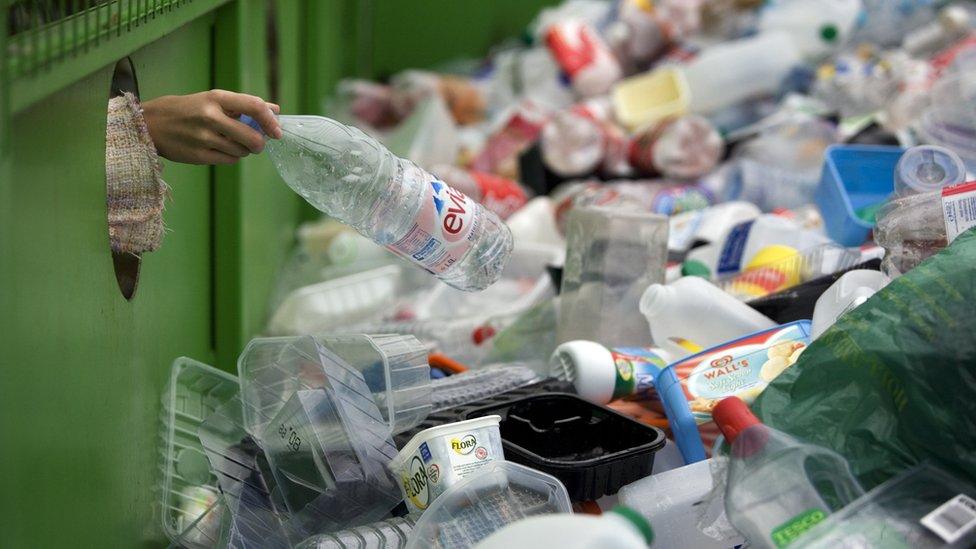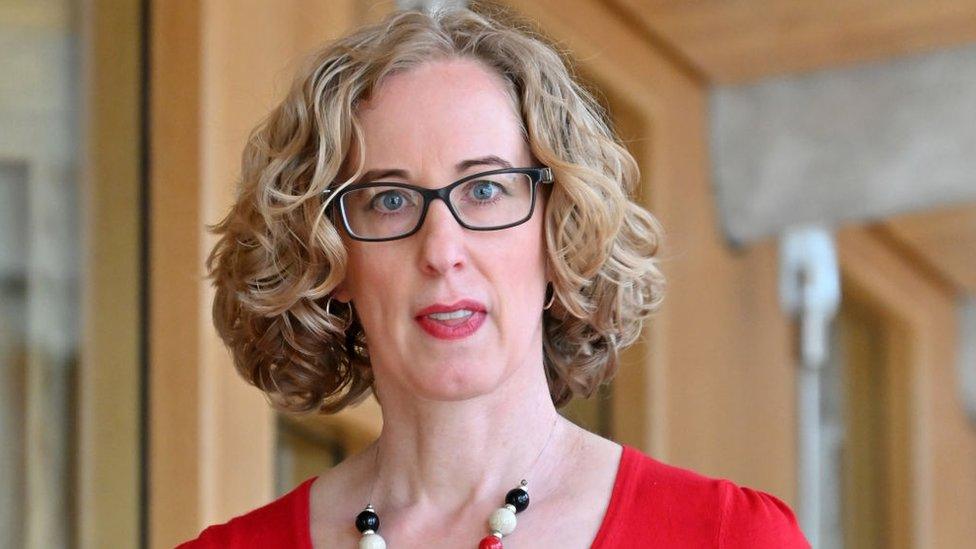Recycling plans criticised by Holyrood committee
- Published

Plans to ensure Scots households, businesses and councils improve their re-use and recycling of materials have met with strong criticism from Holyrood's finance committee.
The Circular Economy Bill is being steered through the legislative process by Green MSP and minister Lorna Slater.
The "entirely unrealistic" costings that accompany the bill are being attacked by the SNP-led finance and public administration committee.
The Green MSP Ross Greer is a member.
The committee widens its criticism of ministers more generally, for using framework or "enabling" legislation to introduce change, and leaving it until later to set out the costs.
The committee convener, SNP MSP Kenneth Gibson, says the Circular Economy Bill "reinforces our concerns" that ministers are not making affordability a "key factor" in decision-making.
He said the process "effectively undermines parliamentary scrutiny" and risks "parliament passing legislation which may in the end, once outcomes are fully understood, be unaffordable".
This is seen as making the financial scrutiny of ministers' plans "incredibly challenging, if not impossible".
The criticism says there are long-term risks to budgeting, and it comes less than three weeks ahead of publication of the draft budget by Shona Robison, the deputy first minister.
It follows the controversy over trying to introduce the Deposit and Return Scheme for drink containers, also steered by Lorna Slater. That ran into business opposition due to the costs and practical difficulties imposed on them, and was blocked as legislation by the UK government.

Green MSP Lorna Slater led the push to introduce a Deposit and Return Scheme for drink containers
The Circular Economy Bill is intended to strengthen the requirement of ministers to set targets for re-use and recycling and could lead to requirements on councils to step up recycling and improve the separation of items.
Consumers would be affected by the proposed introduction of charges on single-use coffee and tea cups, new powers of enforcement in the recycling of household waste, as well as tougher penalties for fly-tipping.
The committee report into the Circular Economy Bill says projected savings are "unsatisfactory".
It said ministers have failed to meet the obligation in Holyrood's standing orders to provide "best estimates of the costs, savings and changes to revenues to which the provisions of the Bill would give rise".
Among those items highlighted by the committee is the claim that all fines for newly-created offences, such as fly-tipping, will be collected in full, to offset the cost of enforcing the policy. This is seen as "entirely unrealistic", after witnesses told the committee inquiry that fine collection rates run at only 10 to 15%.
The financial memorandum for the bill estimates costs for the Scottish government at £1.5m over three years, and nearly £900,000 for the Scottish Environment Protection Agency. It is less clear about the net costs for councils once savings are estimated, and there is no estimate for the costs being imposed on households or firms.
Local authorities have questioned the assumed costs for enforcement officers, saying they believe the costs per person will be around 50% higher than the Scottish government assumes.
'Reduced litter costs'
Responding to the committee report, Circular Economy Minister Lorna Slater said the legislation may create new opportunities and green jobs in Scotland.
"The bill is also expected to bring benefits to local authorities, for example as a result of less contamination of recycling, and savings made through waste collection and disposal costs, including reduced litter costs," she said.
"The financial memorandum provides strategic-level cost and benefit data which will be refined as part of ongoing work with local authorities and householders, businesses and other stakeholders."
The lead group of MSPs scrutinising the Circular Economy Bill, the Net Zero, Energy and Transport Committee, is yet to publish its report.